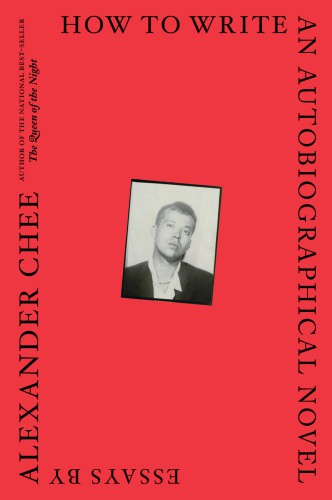
How to Write an Autobiographical Novel
Essays
کتاب های مرتبط
- اطلاعات
- نقد و بررسی
- دیدگاه کاربران
نقد و بررسی

Starred review from December 18, 2017
“To write is to sell a ticket to escape, not from the truth, but into it,” short story writer and novelist Chee (The Queen of the Night) alerts readers here. In the 16 essays assembled, he reflects on a breadth of experiences that, collectively viewed, offer a portrait of the developing writer. In Chee’s hands, varied subjects, however disparate they may seem, coalesce—a summer in Mexico as an exchange student, a stint as a Tarot-deck reader, a writing course with Annie Dillard, an AIDS march, performing in drag, meeting William F. Buckley on a catering job, tending a garden. Chee’s aphoristic pieces “100 Things About Writing a Novel” and “How to Write an Autobiographical Novel” implicitly counter the notion of a direct memoir. “The memoir a kind of mask too, but one that insists you are only one person,” Chee asserts. Chee’s collection is, at its core, about writing itself: about how writing happens and writers are formed. A duller, less evocative title along the lines of How I Became a Writer might have been more accurate, but that would have failed to convey Chee’s marvelously oblique style as an essayist—his capacity to inform and educate readers while they’re too enraptured to notice. Agent: Jin Auh, Wylie Agency.

February 1, 2018
A precise and candid set of essays from the novelist Chee (English and Creative Writing/Dartmouth Coll.; The Queen of the Night, 2016, etc.) about life, writing, and how each sustains the other.This collection wasn't planned as a conventional memoir. However, arranged to cover the author's life from adolescence to the present day, it possesses a loose arc and consistent set of throughlines. One is Chee's status as a gay Amerasian man, which has energized him as a pro-LGBT activist and liberated him as a person; the counterweights, though, are the friends lost to AIDS and the professional doors closed to him. (His first gay-themed novel had a hard time selling due to its subject matter.) Another throughline is Chee's struggle to launch his writing career, and he's engagingly blunt about the labor that serious writing demands and the money that's often lacking anyway. At his most spirited, in "My Parade," he rebuts the dismissive cliches about MFA programs and how they're often born of a writer's fear of confronting the emotional honesty the job requires. "The only things you must have to become a writer," he writes, "are the stamina to continue and a wily, cagey heart in the face of extremity, failure, and success." Even Chee's detours don't stray far from his core concerns: working as a cater-waiter for William F. Buckley and his wife demanded emotionally balancing a certain jealousy of their lifestyle and contempt for his homophobia, while tending a rose garden in his dreary Brooklyn apartment serves as a metaphor for the ordered disorder of writing a novel. What truly unifies these pieces, though, is the author's consistent care with words and open-hearted tone; having been through emotional and artistic wars, he's produced a guidebook to help others survive them too.Deserving of a place among other modern classic writers' memoirs like Stephen King's On Writing and Chee's mentor Annie Dillard's The Writing Life.
COPYRIGHT(2018) Kirkus Reviews, ALL RIGHTS RESERVED.

April 15, 2018
A former literary agent once told Chee (English & creative writing, Dartmouth Coll.; The Queen of the Night) that reviewers would have a hard time writing about his work. They weren't lying. It's not easy to sum up this collection of essays: the subjects range from boyhood summers, encounters with tarot, gardening, writing, seemingly innocuous themes that introduce memories of loss, struggle, activism, abuse, the list goes on. Chee considers the design of a rose garden with the same regard as his first cup of coffee in the aftermath of tragedy (because a rose is never just a rose and that cup of coffee is the only thing certain). Chee's writing has a storylike quality that reads like short fiction. The content is heavy but never hopeless--the work here isn't happy, yet it never leaves readers feeling broken. Each essay is compulsively engaging, despite the dark themes (or, perhaps, because of them). VERDICT This is a beautiful book--hard to sum up, sometimes hard to digest, but a delight to read. A must for anyone interested in the craft of writing, politics, LGBTQA+ rights, AIDS activism, family, tarot, even roses.--Gricel Dominguez, Florida International Univ. Lib., Miami
Copyright 2018 Library Journal, LLC Used with permission.

Starred review from March 15, 2018
When Chee (The Queen of the Night, 2016) was once asked why his first novel, Edinburgh (2001), wasn't a memoir, he was confused by the question; had he even consciously made the choice? This collection of Chee's essays explores this and many other questions while cataloging the lessons and experiences that shaped him as a person and a writer. From Annie Dillard, his professor at Wesleyan, who leaps from the page in his descriptions, Chee learned that writing is work anyone can learn to do. At the Iowa Writer's Workshop, Deborah Eisenberg taught him how what we invent, we control, and how what we don't, we don't?and that it shows. Though Chee, who now teaches at Dartmouth, in a very welcome way makes students of readers, his audience is in no way limited to writers. His quotable, pristine essays consider Chee's family's struggles, his AIDS activism and related losses, his tarot obsession, the labor of writing, the legacies of trauma, and the essentiality of making and having art. Hand to readers searching for something to follow 2017's incredible parade of writers' memoirs, including Roxane Gay's Hunger and Amy Tan's Where the Past Begins.(Reprinted with permission of Booklist, copyright 2018, American Library Association.)

























دیدگاه کاربران